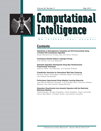
COMPUTATIONAL INTELLIGENCE
Scope & Guideline
Unleashing Insights in Artificial Intelligence and Computational Methods
Introduction
Aims and Scopes
- Artificial Intelligence and Machine Learning:
The core focus is on developing and applying AI and machine learning techniques across various domains, including healthcare, telecommunications, and environmental monitoring. - Data Analysis and Predictive Modeling:
The journal emphasizes advanced data analysis techniques, predictive modeling, and decision-making frameworks using AI-driven approaches. - Multimodal and Multiscale Learning:
Research often explores the integration of multimodal data sources and multiscale learning methods to enhance model performance and application range. - Healthcare Applications:
A significant portion of the research is dedicated to healthcare, including disease diagnosis, medical imaging analysis, and patient monitoring systems. - Security and Privacy in Computing:
The journal addresses the challenges of security and privacy in computational systems, particularly in the context of IoT and data protection. - Optimization Techniques:
Innovative optimization methodologies utilizing AI, such as genetic algorithms and reinforcement learning, are frequently discussed to solve complex problems.
Trending and Emerging
- Explainable AI (XAI):
With increasing concerns about AI decision-making transparency, research on explainable AI has gained traction, focusing on methods to make AI outputs understandable to users. - Federated Learning and Privacy-Preserving Techniques:
The rise of IoT and data privacy concerns has led to a growing interest in federated learning, which allows for model training without compromising individual data privacy. - Deep Learning in Healthcare:
Deep learning applications in healthcare, particularly for medical image analysis and disease prediction, are rapidly expanding, showcasing the potential of AI in improving patient outcomes. - AI for Environmental Monitoring:
Research focusing on the application of AI for monitoring and managing environmental issues, such as climate change and resource management, is on the rise. - Integration of AI with IoT:
The convergence of AI and IoT technologies is increasingly prevalent, with studies exploring smart systems that leverage AI for enhanced decision-making and automation. - Multimodal Learning:
There is a growing emphasis on multimodal learning approaches that integrate various data types (e.g., text, image, sensor data) to improve model performance and applicability.
Declining or Waning
- Traditional Statistical Methods:
There is a noticeable reduction in the focus on traditional statistical methods for data analysis, as the field shifts towards more advanced machine learning techniques. - Rule-Based Systems:
The prominence of rule-based expert systems appears to be waning, with a shift towards learning-based approaches that can adapt and improve over time. - Basic Neural Network Models:
While neural networks remain a significant area of research, simpler architectures are being overshadowed by more complex models like deep learning and hybrid architectures. - Single-Domain Applications:
Research that focuses exclusively on single-domain applications is declining, as there is a growing trend towards interdisciplinary approaches that integrate multiple domains and data types. - Conventional Image Processing Techniques:
The interest in conventional image processing techniques is decreasing as more researchers adopt deep learning methods for image analysis and recognition.
Similar Journals

JOURNAL OF UNIVERSAL COMPUTER SCIENCE
Connecting researchers to the forefront of technology.JOURNAL OF UNIVERSAL COMPUTER SCIENCE, published by Graz University of Technology's Institute for Information Systems and Computer Media (IICM), stands as a pivotal resource in the field of computer science. Since its inception in 1994, this Open Access Journal has fostered a culture of knowledge sharing and collaboration, allowing readers from all corners of the globe to access cutting-edge research without barriers. With an impressive convergence of studies spanning from 1996 to 2024, the journal covers a breadth of topics within Computer Science, achieving a Q3 ranking in miscellaneous areas and a Q4 ranking in theoretical computer science as of 2023. It also holds significant standing in Scopus rankings, demonstrating its influence and reach among the scientific community. The journal is particularly valuable to researchers, professionals, and students eager to explore innovative ideas and techniques that push the boundaries of computer science. Based in Austria, the journal is dedicated to maintaining high standards of scholarly integrity while promoting interdisciplinary discourse and advancements in technology.
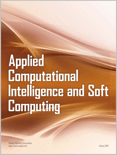
Applied Computational Intelligence and Soft Computing
Pioneering Research in Applied Computational MethodsApplied Computational Intelligence and Soft Computing, published by HINDAWI LTD, is a premier open access journal that has been disseminating critical research since 2009, focusing on the intersection of artificial intelligence and soft computing. With an impressive array of quartile rankings in 2023, including Q2 in Civil and Structural Engineering and Computational Mechanics, this journal has established itself as a significant contributor to the fields of computer science and engineering. Based in Egypt, it plays a vital role in advancing knowledge by providing researchers, professionals, and students with easy access to high-quality studies. The journal’s rigorous peer-review process ensures that only the most impactful research is highlighted, making it an essential resource for those looking to stay abreast of the latest innovations and methodological advancements in applied computational intelligence. Its Scopus rankings further affirm its influence and reputation within the academic community, exemplifying its commitment to facilitating collaboration and fostering intellectual discourse in various scientific domains.
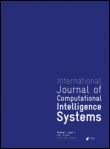
International Journal of Computational Intelligence Systems
Connecting Researchers with Cutting-Edge InsightsInternational Journal of Computational Intelligence Systems, published by SPRINGERNATURE, is a leading open-access journal that has been at the forefront of research in the field of computational intelligence since 2008. With an ISSN of 1875-6891 and an E-ISSN of 1875-6883, this journal occupies a prominent place in the academic landscape, achieving impressive rankings in its categories: Q2 in both Computational Mathematics and Computer Science (miscellaneous), reflecting its significance and relevance to researchers, professionals, and students. Based in Switzerland, the journal is committed to disseminating high-quality research and fostering innovation in computational methodologies, algorithms, and applications. Its strong impact factor and Scopus rankings—31/189 in Computational Mathematics and 53/232 in General Computer Science—underscore its critical role in advancing knowledge in these interdisciplinary fields. As an open-access journal, it provides unparalleled accessibility to cutting-edge research, supporting the global community in staying at the forefront of computational intelligence advancements.

Journal of Information and Communication Technology-Malaysia
Connecting Researchers with Cutting-Edge InsightsJournal of Information and Communication Technology-Malaysia is a respected open-access journal published by UNIV UTARA MALAYSIA PRESS, dedicated to advancing knowledge in the fields of Information Technology, Computer Science, and Mathematics. With an ISSN of 1675-414X and an E-ISSN of 2180-3862, this journal has been providing a platform for innovative research since its establishment in 2009. The journal is indexed in Scopus with commendable rankings in Mathematics and Computer Science categories, highlighting its contribution to the academic community, particularly with its Q3 quartile status in both fields as of 2023. As it converges research from 2011 to 2024, the journal invites submissions that explore contemporary challenges and technological advancements, catering to a global audience of researchers, professionals, and students interested in the rapidly evolving domains of ICT. By ensuring open access to its articles, the journal promotes widespread dissemination and accessibility of cutting-edge research, thereby supporting the collaborative development of ideas and solutions in these critical areas.

Journal of Advanced Computational Intelligence and Intelligent Informatics
Unlocking the Potential of Intelligent InformaticsThe Journal of Advanced Computational Intelligence and Intelligent Informatics, published by FUJI TECHNOLOGY PRESS LTD, stands as a pivotal platform in the fields of Artificial Intelligence, Computer Vision, and Human-Computer Interaction. Established in 1997, this Open Access journal has been providing accessible insights into the latest advancements in computational intelligence and informatics since 2007. With its ISSN 1343-0130 and E-ISSN 1883-8014, this journal invites a diverse readership, including researchers, professionals, and students eager to explore innovative methodologies and applications. Despite its current Q4 ranking in the relevant categories, the journal remains committed to contributing valuable knowledge to the academic community and enhancing the global discourse in computational technologies. With its focus on fostering communication and collaboration among scholars, the journal plays an essential role in driving forward the understanding of intelligent systems and their applications in various domains.

Applied Computing and Informatics
Leading the Charge in Open-Access Computing ResearchApplied Computing and Informatics, published by Emerald Group Publishing Ltd, is a prominent open-access journal that has been serving the academic community since 2011. With a focus on advancing the fields of Computer Science Applications, Information Systems, and Software, this journal has established itself as a noteworthy publication, currently ranking in the Q3 quartile for each of its categories in 2023. The journal is particularly recognized for its commitment to disseminating high-quality research, as evidenced by its impressive Scopus rankings—placing it in the 92nd percentile for Computer Science Applications and the 91st percentile for both Information Systems and Software. Based in Saudi Arabia, it adopts a global perspective, inviting contributions from researchers worldwide. With its open-access policy, Applied Computing and Informatics ensures that cutting-edge research is accessible to a broad audience, fostering collaboration and innovation within the computing and informatics disciplines. This journal is an essential resource for academics, professionals, and students seeking to keep abreast of the latest trends and developments in their field.
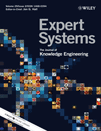
EXPERT SYSTEMS
Transforming Ideas into Impactful Intelligent Systems Research.EXPERT SYSTEMS is a prestigious journal published by WILEY, dedicated to advancing the fields of Artificial Intelligence, Computational Theory and Mathematics, Control and Systems Engineering, and Theoretical Computer Science. Established in 1984, this journal has consistently provided a platform for rigorous research, showcasing innovative methodologies and applications that drive the future of intelligent systems. With an impressive impact factor and Scopus rankings placing it among the top quartiles within its categories, EXPERT SYSTEMS is a vital resource for researchers, professionals, and students seeking to deepen their understanding of complex systems and their applications. The journal is not currently an Open Access publication, emphasizing its commitment to high-quality, peer-reviewed research that impacts the global academic community. With a convergence year extending to 2024, it prepares to continue its legacy as a cornerstone of knowledge in these dynamic fields.
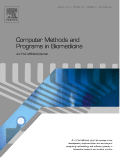
Computer Methods and Programs in Biomedicine
Advancing the Future of Biomedicine through Computational Innovation.Computer Methods and Programs in Biomedicine, published by ELSEVIER IRELAND LTD, is a leading journal at the intersection of computer science and biomedical research. With an impressive impact factor evidenced by its Q1 rankings in multiple categories—Computer Science Applications, Health Informatics, and Software—this journal ranks highly among peer publications, showcasing its significance in advancing interdisciplinary research. Covering a wide array of topics since its inception in 1985, it is particularly crucial for those invested in the innovation of computational methods applied to the biomedical field. The journal has established a strong reputation, with Scopus rankings placing it in the top percentiles across its relevant sectors, including the 14th position out of 138 in Health Informatics. Researchers, practitioners, and students looking to explore current trends, methodologies, and advancements in biomedical applications of computer science will find this journal an invaluable resource.

CAAI Transactions on Intelligence Technology
Fostering Global Dialogue on Intelligence TechnologyCAAI Transactions on Intelligence Technology is a premier peer-reviewed journal published by WILEY, dedicated to advancing the fields of Artificial Intelligence, Computer Networks and Communications, Computer Vision and Pattern Recognition, Human-Computer Interaction, and Information Systems. Since its inception in 2017, this Open Access journal has rapidly ascended the ranks, achieving Q1 quartile status across multiple categories as of 2023, and is recognized for its rigorous standards and innovative research dissemination, evidenced by impressive Scopus rankings, including Rank #12 in Computer Vision and Pattern Recognition. Through its commitment to providing a platform for high-quality research, the journal invites contributions from scholars globally, fostering a collaborative environment that stimulates intellectual exchange and encourages advancements in intelligent technology. Addressed to researchers, professionals, and students alike, CAAI Transactions on Intelligence Technology serves as a vital resource for those aiming to stay at the forefront of technological innovation.

International Journal of Mathematics and Computer Science
Bridging Theory and Application in Mathematics and ComputingThe International Journal of Mathematics and Computer Science (ISSN: 1814-0424, E-ISSN: 1814-0432), published by Lebanese University, serves as a vital platform for disseminating innovative research and advancements in the fields of mathematics and computer science. With a compelling range of topics including Algebra, Applied Mathematics, Computational Mathematics, and Statistical Analysis, this journal caters to a broad audience of researchers, professionals, and students. Spanning the years from 2017 to 2025, it has established a presence in several key quartiles, including Q3 rankings in Applied Mathematics and Computational Mathematics, and a Q4 ranking in Algebra and Number Theory. While currently not an open-access journal, it provides valuable insights through its rigorous peer-reviewed process, enhancing its relevance in both theoretical and applied domains. Furthermore, its presence in Scopus rankings reflects its commitment to quality, making it an essential resource for anyone looking to explore the intersection of mathematics and computer science.